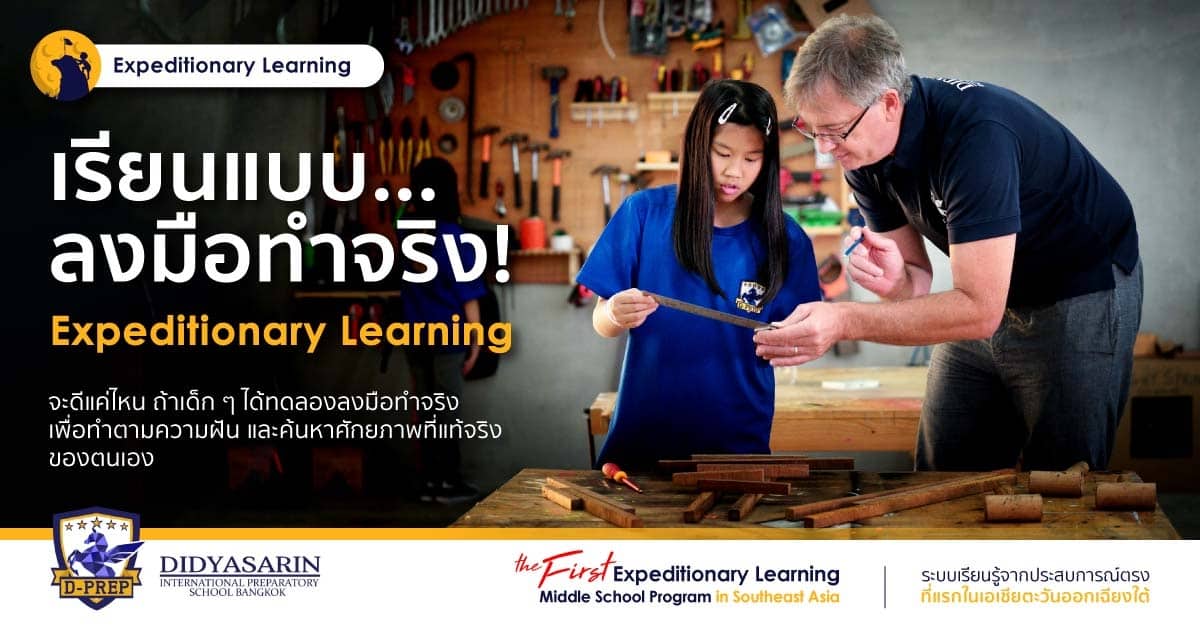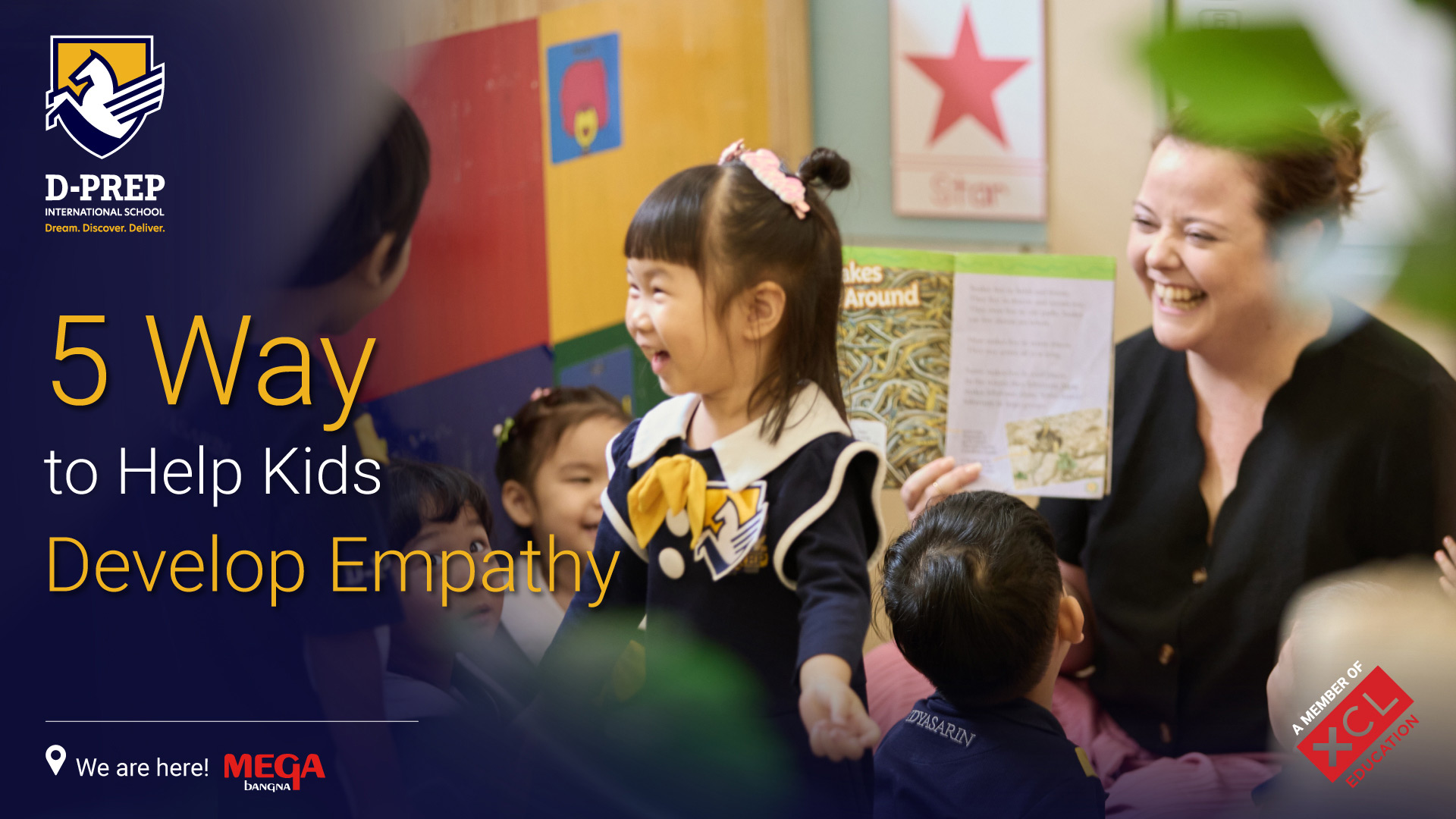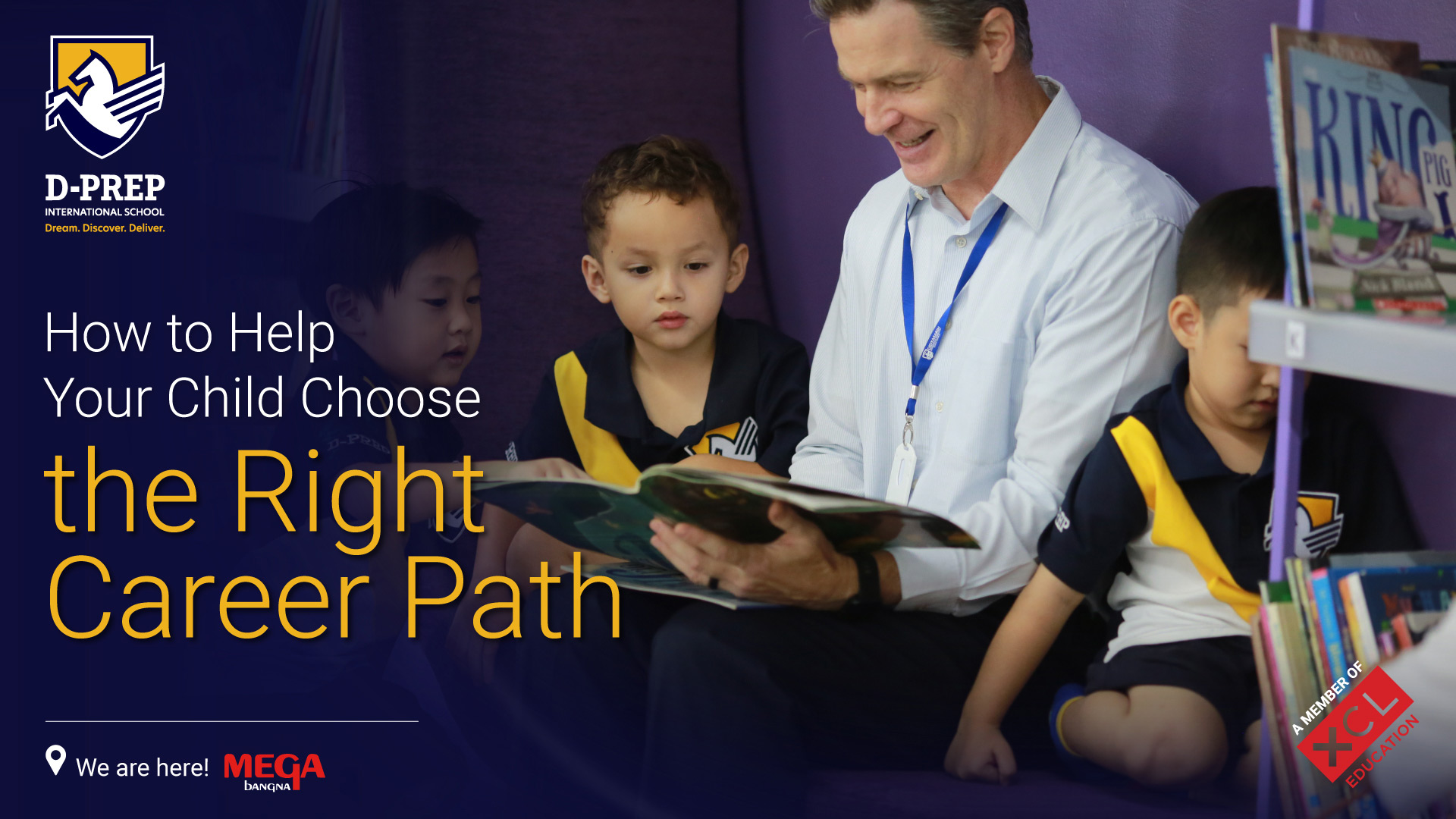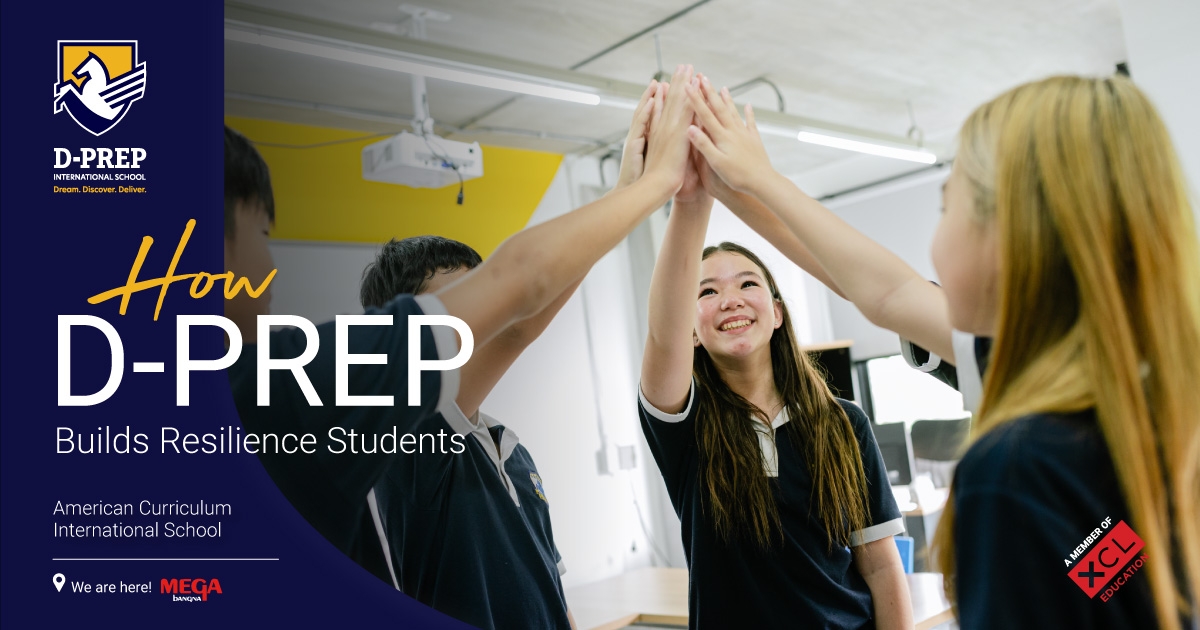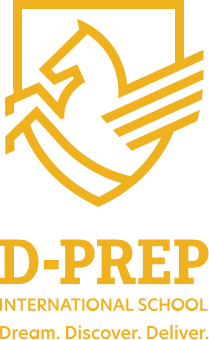The focus of experiential learning is for students to learn by doing, by participating and through this experience they learn their academic content, skills and understanding. Expeditionary learning is the way that we at D-PREP deliver experiential learning in our middle school.

Where did expeditionary learning originate from?
Expeditionary Learning (EL) was developed from the experience of Outward Bound. The system stems from ten design principles. Across America, there is an extensive network of Expeditionary learning partner schools.
Currently, there are only a small number of EL inspired schools outside of America, and D-PREP is the first Expeditionary Learning inspired school in Asia.
Expeditionary learning captures a student’s imagination and passion to learn. It is a powerful way to model the courage, and compassion needed to not only dream of a better world but also to discover and deliver on improving our communities to make this a reality.
What is a learning expedition?
Learning expeditions are in-depth and interdisciplinary projects. These projects range from 6 weeks to a whole year. These projects provide an authentic way for students to participate in research, engage with their community, and demonstrate their knowledge through high-quality products.
During the learning expedition, students learn through case studies, hands-on projects, fieldwork, experts, and through creating real-world products. The project concludes with our students having the opportunity to showcase their learning to demonstrate the high-quality work they have produced. These learning expeditions support mastery in all three dimensions of student achievement.
Teaching teams plan collaboratively to take standards and organize them into these learning experiences to develop skills and content knowledge. When the teachers plan these expeditions, we doc
Expeditions start with a call to action or adventure with authentic service learning with their community. This is followed by independent research, case studies and in-depth investigations which are mapped to rigorous academic standards.
Students take on professional roles and work with experts and industry professionals to support their work. Students develop life skills encompassing character development. The expedition ends with a student showcase in which they must demonstrate their learning through their final products and solutions developed across the expedition.
Dimensions of Student Achievement

As adults, we are not acknowledged for our performance on basic skills. We are celebrated and appreciated by others based on our character, and the quality of our work. We designed our curriculum through our learning expeditions to develop character through life skills, and focus on quality work. The way that we view student achievement and success are built around developing capacity in three areas.
Mastery of knowledge and skills
The first strand, focus on mastery of knowledge and skills. This requires students to engage with academic content at a deep level. They must have opportunities to learn then apply and transfer their knowledge to other tasks. Through this students develop critical thinking skills and the ability to clearly communicate complex ideas.
Life Skills and Character development
At D-PREP character development is supported through our Life Skills framework. Students learn to understand themselves, learn to become effective learners and develop the mindsets and skills for success in college, career, and life. (e.g., initiative, responsibility, perseverance, collaboration). Through acting ethically, and using their learning to improve communities as active citizens. A strong element in this development is through our Crew culture.
High-quality students work
Students are required, guided and expected to create authentic high-quality work connected to real-world issues. We want our students to show original thinking and voice. The adoption of design thinking principles results in an expectation of multiple revisions to create products that are accurate and beautiful in concept and execution.

What evidence is there that Expeditionary Learning works?
Over the last 25 years, there is now mounting evidence to support the high-quality learning and important academic benefits and outcomes of expeditionary learning. For example, two independent research groups, the Academy for Educational Development and a team from the University of Colorado’s Department of Education, have studied Expeditionary Learning programs.
Both groups found dramatic increases in students’ levels of engagement and motivation, as demonstrated by high attendance and low rates of disciplinary problems. Data from across EL schools in America have also shown increased reading, math, and English assessment scores for schools that implemented an expeditionary learning approach.
How do Expeditionary Learning schools assess the performance of their students?
Assessment is an essential element of Expeditionary Learning. Through our learning expeditions, our students join a culture of reflection, revision and continuous improvement.
We use explicit criteria that student performance is judged, and students are expected to revise and edit their work until they achieve their best work. This is integrated into the learning process and the cycle of a project.We recognize that effective assessment is impossible without clearly defined standards. We require students to meet skill and content requirements as detailed in the US common core, and NGSS standards. Students at the end of, 5th, 8th, 10th and 12th grade present their portfolios for evaluation. This presentation is made to their crew leader, their parents and peers. This gives students the opportunity to demonstrate they have completed the required work and achieved the required knowledge and skills to get promoted to the next stage of their learning.
Crew
“Crew” comes from a quote by Kurt Hahn, the founder of Outward Bound, “We are crew, not passengers, strengthened by acts of consequential service to others”. In school this is about members of the school community working together as a team, to help others. Individual success is not enough, staff and students help each other achieve their goals.
The structure of crew centers around daily meetings which are designed to support and guide their learning and growth within the crew team – monitoring their academic progress alongside their development of life skills. This develops relationships between the students and with their crew leader. Crew ensures that all students are known and supported.
Key Facts
- Students graduate with the academic knowledge, critical thinking skills, problem-solving and life skills needed to succeed in university and beyond
- Students develop high expectations for quality work, and commitment to their learning
- Students take on leadership roles in the school and community
- Students lead family conferences and make presentations to experts which engages their families and communities in their learning
- Students undertake challenging projects which have them do the work of professionals, whether this is a scientist, historian, mathematician, writer, or artist
- Students in partnership with experts and conduct research to create high-quality professional standard academic products
- Students participate and contribute with their communities through meaningful service as an integral element of the curriculum
- Students enjoy a safe and secure learning environment in which is focused on kindness, respect, and responsibility.
ตัวอย่างผลงาน Project Expeditionary Learning (EL) ที่เหล่านักเรียนไปสัมภาษณ์ในหัวข้อ “Who is Thailand?”

